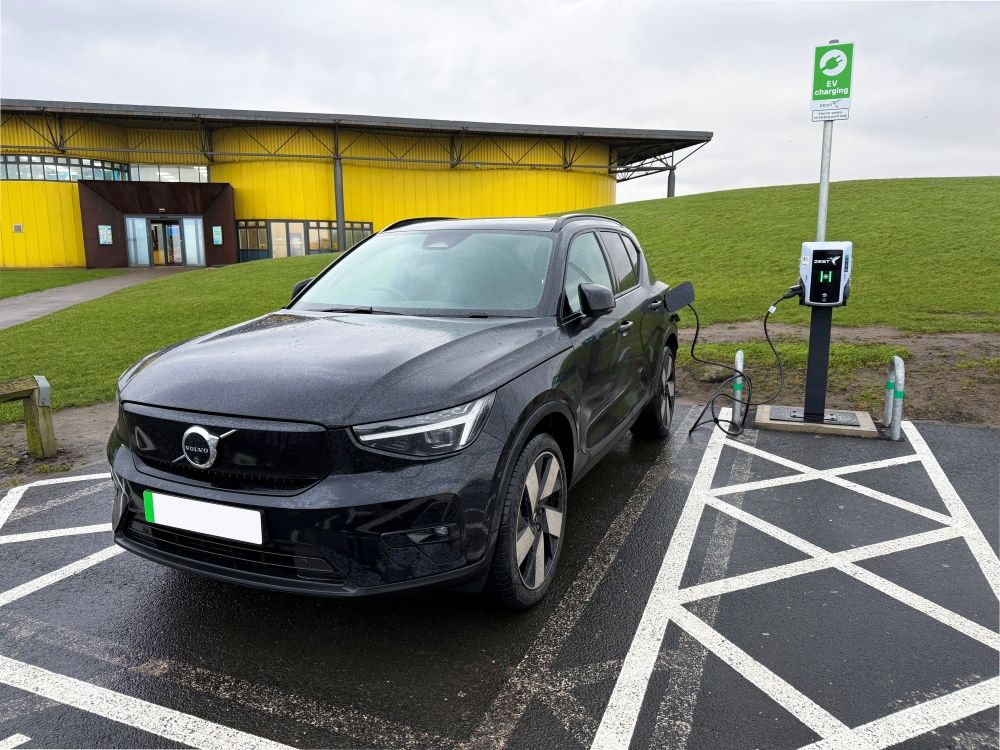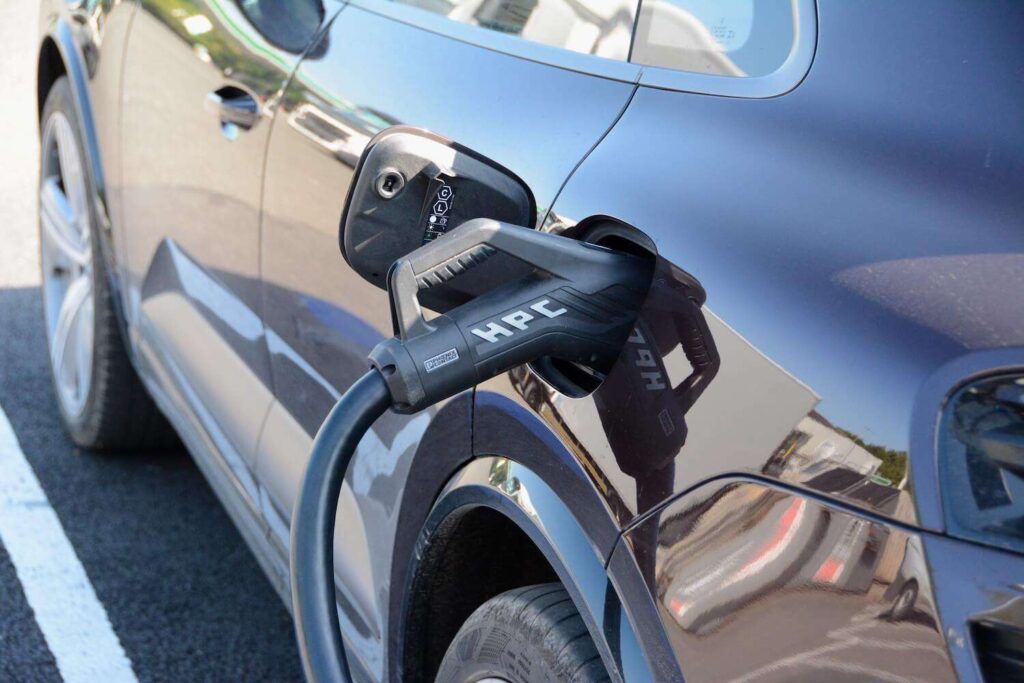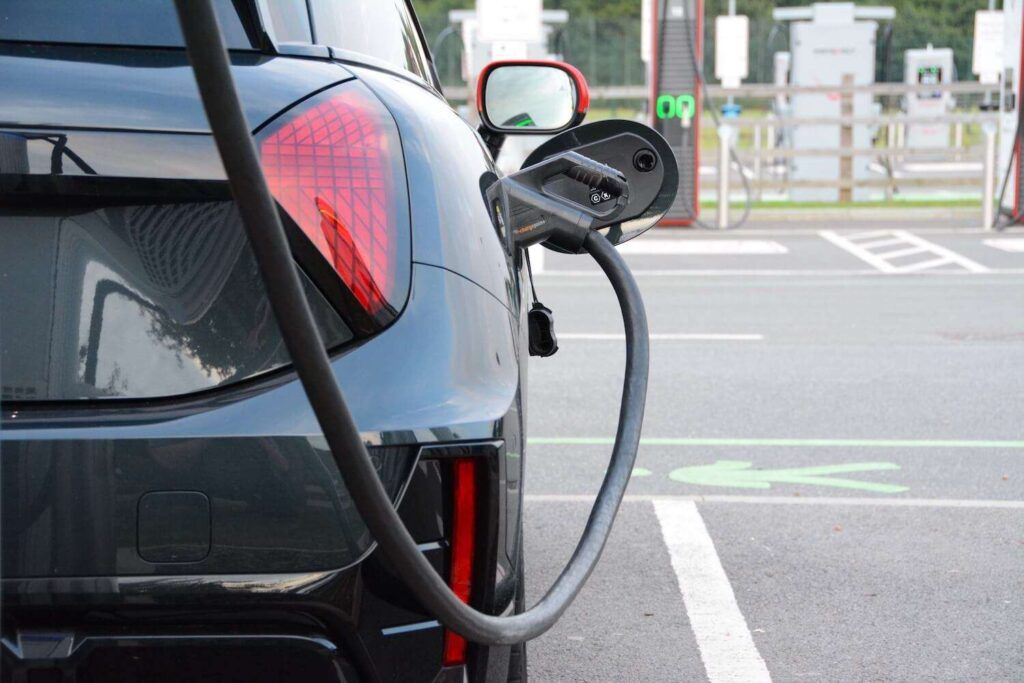Mike Hawes, the Chief Executive of the Society of Motor Manufacturers and Traders (SMMT), has warned that the UK automotive sector must seek stability in order to sustain a record £7.9 billion of electric vehicle (EV) exports – with new analysis revealing they are up 110.4% since 2017.
In September, Battery Electric Vehicle (BEV) output grew strongly – up 16.6% to 8,856 units and representing more than one in seven (14.0%) of cars made in September. Year-to-date, UK car factories have turned out a record 52,888 BEVs, up almost a fifth (19.3%) on the first nine months last year and evidence of the UK’s capability in making cutting-edge, zero emission vehicles that are in strong demand around the world, with 78.4% shipped to markets overseas.
The figures come as fresh SMMT analysis confirms the increasingly important role of electrified vehicle production to the UK economy, especially the value of exports. Over the past five years, the value of BEV, PHEV and HEV global exports has risen six-fold, from £1.3 billion to £7.9 billion meaning they now represent more than a third (36.1%) of the value of all UK car exports, up from a mere 4.1%. BEVs, in particular, are critical to the future prosperity of the UK, with the value of their exports up a significant 1,457%, from £81.7 million to £1.3 billion, since 2017.
The data also reveals that, in 2021, the value of BEV, PHEV and HEV exports to the EU alone totalled £4.11 billion, just surpassing the value of internal combustion car exports (£4.09bn) and demonstrating the importance of shipping electrified models to ensure sector jobs and growth. So far in 2022, almost six-in-10 of the UK’s car exports (57.4%) have been for markets in the EU.
Mike Hawes, SMMT Chief Executive, said: “Billions of pounds and thousands of jobs are dependent on the automotive sector and, increasingly, on electrified vehicle production. Despite the current challenges, our car makers remain resilient and are well placed to ramp up output of the latest, zero emission vehicles which will help drive an economic recovery, create jobs and boost growth. Success is not guaranteed, however, and to realise its potential the UK sector must attract new investment – which means creating competitive investment conditions. Stability, combined with a plan that tackles critical skills shortages, delivers regulatory certainty and brings down the cost of energy in the long-term can help put the UK at the forefront of next generation automotive manufacturing.”
The sector is calling on government to work together to create a competitive business environment for UK automotive manufacturing. The SMMT says that with the right competitive framework covering energy and business costs, supply chain security, skills, innovation and investment, the industry will not simply recover, but thrive in the global economy.
New frameworks for energy security and the market, and business taxation, such as the business rates regime, need urgent action if the sector is to attract the investment it sorely needs as overall car production year-to-date remains down -12.6% on 2021 at 547,231 units. The decline is driven by falling exports, which are down -16.9%, although still almost eight in every 10 (78.6%) cars made in Britain is built for overseas markets. The number of cars made for the UK, meanwhile, is up 8.4% year on year to 122,841 units.
Overall UK car manufacturing output declined by -6.0% in September, following four consecutive months of growth, according to the latest figures published by the SMMT. 63,125 models rolled off factory lines, with output again restricted by severe supply chain issues affecting manufacturers, driving volumes down by -47.7% from the 120,729 cars built in the same month in pre-Covid 2019.
This September, exports declined -7.4% to 48,956 units, driven by reductions in shipments to the EU, US and China, although exports increased to South Korea, Australia and Turkey. The number of cars built for the UK market, meanwhile, also fell slightly, down -0.9% to 14,169 units. Despite the overall decline, UK production of battery electric (BEV), plug-in hybrid (PHEV) and hybrid (HEV) vehicles continued its recent upward trajectory, with combined net 9.9% growth to a record share of 37.8%.
Image courtesy of Shutterstock.












